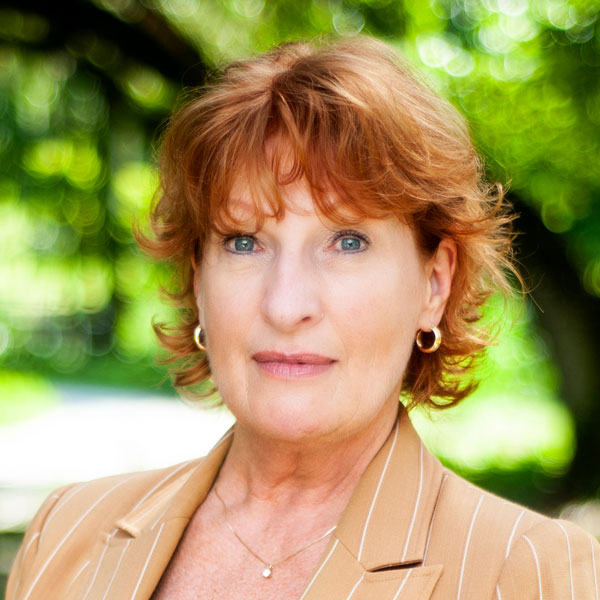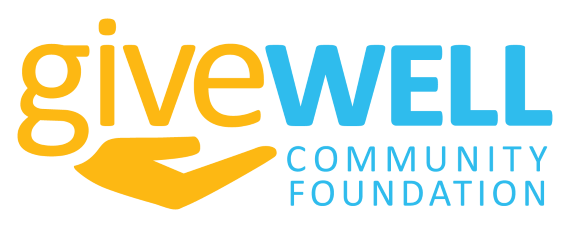Structuring the multi-generational philanthropy plan, tapping charitable giving to motivate clients, and two eye-catching news stories
Helping your clients get organized: Structure is a critical step in multi-generational philanthropy
Instilling the idea of charitable giving in children and grandchildren at first blush may appear to be easy, but where to begin, and how to make it ongoing? More and more, wealth advisors are being asked by their clients to weigh in on strategies for fostering a family’s financial values, which frequently include charitable giving traditions.
An important first step in creating any multi-generational philanthropic plan is to advise clients to consider organizing their charitable giving, such as through a family donor-advised fund at GiveWell Community Foundation (GWCF).
The process of organizing charitable giving itself creates much-needed clarity around the family’s philanthropic vision and goals. This is because without an organized approach to family giving, it is easy for children and grandchildren to get confused about their parents’ and grandparents’ processes and interests for making decisions about which nonprofits to support.
Consider this scenario:
“Before we got everything organized through the Community Foundation, our family seemed to take a shotgun approach to charitable giving,” commented the daughter of an entrepreneur who formed a family donor-advised fund upon the sale of a business.
Her mother, the entrepreneur, had underestimated the confusion: “Nearly every check I’d ever written to a nonprofit organization was aligned with my commitment to supporting a healthy workforce in our community. Without a healthy workforce, my business would never have been successful. Now, though, I see that because I was not involving the rest of my family in my giving and explaining why I was supporting certain causes, it might have looked chaotic to them.”
Establishing a fund at GWCF can be a highly effective solution for many of your clients who are launching a multi-generational giving strategy. Here’s why:
- Community foundation vehicles are extremely flexible and can be used to engage an extended family in the process of charitable giving. Donor-advised funds, for example, are popular because they allow your client to name children and grandchildren as successor advisors.
- When your client organizes charitable giving through a fund at GWCF, the client can make a large transfer of cash or marketable securities that is immediately eligible for a charitable deduction. Your client then can recommend grants to favorite nonprofit organizations from the fund when the time is right. This is especially useful in the case of clients who sell a business or for another reason experience a large influx of taxable income in a single tax year.
- Establishing a donor-advised fund at GWCF can be a much better choice for your family-oriented clients than a donor-advised fund offered through a non-local large brokerage firm. Our fees are competitive with commercial gift funds, but even more important: we offer your clients unique value including personal service, local knowledge of community needs and the local nonprofit sector, and expertise in the philanthropic field.
- The professional staff at GWCF can work with your client and the client’s family on a charitable giving plan that extends for multiple future generations. Our experienced team supports strategic grant making, family philanthropy, and opportunities to gain deep knowledge about local issues and nonprofits making a difference.
- Finally, GWCF’s tools and resources make it much easier for families to communicate across generations about the family’s charitable giving purpose and goals for long-term impact.
We welcome the opportunity to collaborate with you and your philanthropic clients to establish an enduring and rewarding family philanthropy program that is customized to meet each client’s unique interests and goals.

Legacy giving: A conversation that’s full of opportunity
Charitable giving is an important part of any estate planning conversation. Certainly, bold, legacy-making plans are frequently in the news because of the high-profile people who establish them. Your clients may not realize that they, too, can leave a legacy to support favorite charitable causes.
By discussing what legacy charitable gifts are, how they work, what the client has in mind, and then formalizing the client’s plan with the proper legal and financial documentation, you can help your clients tie up a few of “life’s loose ends” far in advance of when that legacy gift is actually made — and give your client the peace of mind of knowing it will actually get done.
Clients’ charitable giving intentions and the possibility of establishing legacy gifts should be a routine and standard topic of any financial or estate planning discussion, right alongside provisions in an estate plan for family and loved ones.
Here is a primer to help you simplify key principles as you convey to your clients what they need to know about leaving a legacy:
Q: What is a legacy gift to a nonprofit organization?
A: Encourage your clients to think of leaving a charitable legacy as a post-life gift that the client structures in advance. Legacy gifts are often referred to as planned giving.
Q: What assets can be used to make a legacy gift?
A: Like the gifts to nonprofit that your clients are already making during their lifetimes, cash, stock (especially highly appreciated stock), real estate, life insurance, and an IRA beneficiary designation (which is extremely tax effective) are examples of assets that can be the subject of a legacy gift. A legacy gift can be expressed in a client’s estate planning documents as a dollar amount, percentage of the whole, or a legacy gift of the assets themselves. Your client will want to choose assets carefully, enlisting your expertise to do so.
Q: How is a legacy gift actually made?
A: Legacy gifts are typically spelled out in detail in a client’s will or trust documents. This is especially important because after the client is gone, too much is otherwise potentially subject to hearsay or conflict. To attorneys, accountants, and financial advisors, this is common sense. But do not overestimate your clients’ understanding of estate plans and how they work. A surprising 2 out of 3 Americans have no estate planning documents!
Q: How can a discussion about legacy gifts help motivate clients?
A: Estate planning can be an uncomfortable topic because, by definition, it requires a client to contemplate mortality. This is likely part of the reason that 40% of Americans say they won’t even consider putting a will in place unless or until their life is in danger. Most clients think charitable giving, though, is a much more pleasant topic than discussing the end of their own lives. That’s why legacy giving is a topic that can help break the ice and pave the way for the broader, essential conversation about overall estate planning.
Q: What are some particulars to be aware of?
A: Most legacy gifts can be revoked or altered through beneficiary or will changes while the client is alive. This is an important feature to mention to clients who want to include charitable giving in their estate plans but like the idea of flexibility as the overall family and financial picture changes over the years.
Q: What tools does GiveWell Community Foundation offer to help?
A: A particularly useful technique is for a client to establish a fund at the Community Foundation that spells out the client’s wishes for charitable distributions upon death to specific organizations. The client’s estate planning documents can, in turn, simply name the fund as the beneficiary of charitable bequests. The client can adjust the terms of the fund anytime during the client’s lifetime to reflect evolving charitable priorities.
We look forward to collaborating with you and your charitable clients as they firm up their legacy giving plans, whether in August or any time of year!

Stories that caught our attention
Yikes!
As a trusted advisor, you may wish to consider sharing with clients the cautionary tale of late singer Aretha Franklin’s estate. A story like this might be the motivation it takes for resistant clients to finally implement estate planning! In a recent court decision, a jury found that the remnants of a 2014 will found in a sofa superseded Franklin’s earlier-stated intentions – and over which family members argued for years.
The doctor is in
Donor-advised funds have gone mainstream! You may notice that the term “donor-advised fund” or “DAF” pops up more and more in your newsfeed. That is no accident! Even niche markets (such as physicians, for example) are getting on board. Just remember that a donor-advised fund established through GiveWell Community Foundation (GWCF) delivers all of the benefits to your client that a commercial donor-advised fund at a non-local large brokerage firm delivers – plus so much more. GWCF is the hub locally for all things philanthropy and the best place for your clients to organize their giving, support favorite causes, and join with others to make a meaningful difference in the community they love.

Ready to get started?
You know your clients. We know philanthropy. Together we can ensure your clients make the best decisions for making a difference in the community.

Lori Martini
Vice President/CPO
863-683-3131
lmartini@givecf.org
